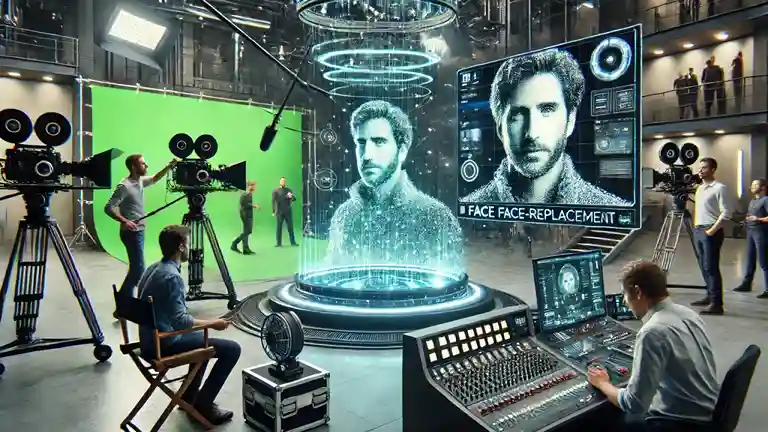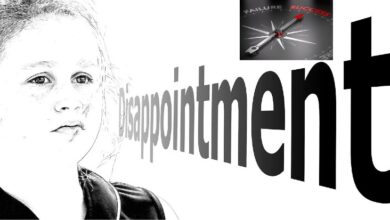The rapid advancement of artificial intelligence has transformed multiple industries, and the film and media industry are no exception. AI video generators, powered by deep learning and neural networks, are now capable of creating highly realistic videos, from short animations to full-length feature films. This raises a crucial question: will AI video generators eventually replace actors and filmmakers? While AI technology is undoubtedly changing the landscape of video production, its potential to fully replace human creativity remains a topic of debate.
In this article, we’ll explore how AI video generators work, their impact on the film industry, and whether they pose a real threat to actors and filmmakers.
How AI Video Generators Work
AI video generator uses machine learning models trained on vast amounts of visual data to create videos from text, images, or other video inputs. These systems leverage deepfake technology, generative adversarial networks (GANs), and diffusion models to synthesize realistic human faces, voices, and movements. Some of the most notable AI video tools, such as OpenAI’s Sora, Runway’s Gen-2, and Pika Labs, demonstrate the growing capability of AI-generated videos.
These AI tools can generate:
- Hyper-realistic characters – AI can create digital actors with natural-looking facial expressions and movements.
- Text to video AI content – AI can produce short films, animations, and even realistic talking avatars from text prompts.
- Video to video AI transformations – AI can modify existing footage, applying different styles or enhancing details.
These features significantly reduce the time, cost, and effort required for traditional video production, making AI a powerful tool for content creators.
The Role of AI in the Film Industry
1. AI in Visual Effects and CGI
AI has already made its mark in Hollywood, particularly in visual effects (VFX). Blockbuster movies use AI-powered tools to de-age actors, create realistic CGI creatures, and enhance scenes with digital effects. Unlike traditional CGI, AI-driven VFX can generate realistic details with minimal manual input, reducing costs and post-production time.
2. AI-Generated Actors: A Threat to Real Performers?
AI-generated characters, often referred to as “synthetic humans,” are now being used in advertisements, video games, and even films. Some AI models can replicate an actor’s face and voice, allowing studios to use digital doubles instead of hiring real actors. This technology raises ethical concerns about intellectual property and fair compensation, particularly after the Hollywood writers’ and actors’ strike in 2023, where AI’s role in content creation was a key issue.
While AI-generated actors may be suitable for minor roles or background characters, can they truly replace the emotional depth and nuance of real human performances? The biggest challenge for AI is replicating genuine emotions, improvisation, and the unique charm that actors bring to their roles.
3. AI in Scriptwriting and Directing
AI is not only changing how films are made but also influencing storytelling. Screenwriting AI tools like ChatGPT and Sudowrite can generate scripts based on prompts, while AI-driven video generators can visualize scenes without needing human directors or cinematographers. Some AI-generated films have already been showcased in festivals, proving that machines can create compelling narratives.
However, AI lacks the human intuition, cultural understanding, and emotional intelligence necessary for crafting truly impactful stories. The art of filmmaking involves a deep connection between the director, actors, and audience—something AI, at least for now, cannot replicate.
The Advantages of AI Video Generators
Despite the debate over AI’s role in filmmaking, there are undeniable benefits to using AI-powered video generation:
- Cost Efficiency: AI significantly reduces production costs by eliminating the need for expensive sets, equipment, and even human actors.
- Speed: AI can generate videos in minutes or hours, whereas traditional filmmaking takes weeks or months.
- Accessibility: Independent creators and small businesses can now produce high-quality video content without massive budgets.
- Scalability: AI allows for rapid content creation, which is beneficial for marketing, social media, and animation projects.
Limitations of AI in Video Production
While AI-generated videos offer exciting possibilities, they still face significant challenges:
- Lack of Human Creativity: AI lacks original thought and relies on pre-existing data, making it difficult to create truly unique and groundbreaking content.
- Uncanny Valley Effect: Many AI-generated characters still appear unnatural or robotic, making them less relatable to audiences.
- Ethical and Legal Concerns: The use of AI-generated actors raises copyright and ownership issues, leading to debates about fair compensation for real actors.
- Emotional Depth and Authenticity: AI cannot fully replicate the charisma, passion, and improvisation that human actors bring to the screen.
Will AI Replace Actors and Filmmakers?
The short answer is no, at least not entirely. While AI video generators will continue to disrupt the industry and automate many aspects of production, they are unlikely to replace the need for human creativity, emotion, and artistic vision.
However, what we may see is a hybrid future, where AI works alongside human filmmakers rather than replacing them. Directors and scriptwriters may use AI to speed up pre-production processes, generate initial drafts, or create visual effects, but the core of storytelling will remain in human hands.
Actors, on the other hand, may find themselves competing with digital counterparts, but audiences still crave authentic performances that AI struggles to deliver. Filmmaking is not just about visuals—it’s about human connection, emotion, and cultural storytelling.
Conclusion
AI video generators are undoubtedly transforming the way films and digital content are created, offering faster, cheaper, and more efficient production methods. However, they are not yet capable of fully replacing actors and filmmakers. The future of AI in filmmaking will likely be one of collaboration rather than replacement, where AI enhances human creativity instead of eliminating it. As AI technology continues to evolve, the industry must strike a balance between innovation and ethical responsibility. Whether AI-generated videos become an essential tool, or a disruptive force remains to be seen, but one thing is certain: the human touch in storytelling will always be irreplaceable.





